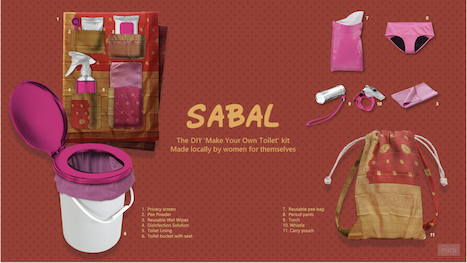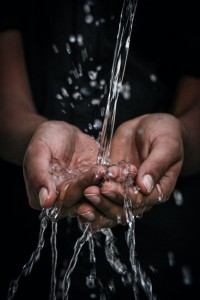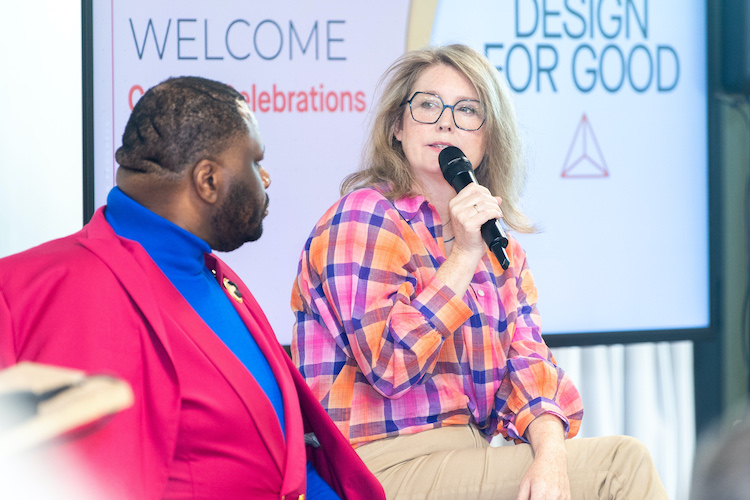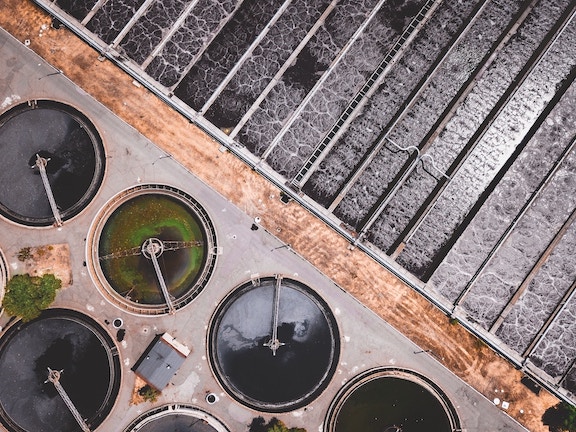Innovative app for community maintenance of water systems and DIY toilet kit among solutions aimed at improving millions of lives
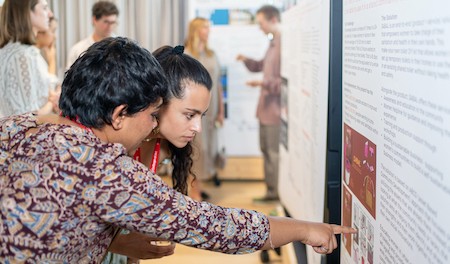 Participants viewing projects at the Design for Good End of Cycle 1 event
held at the Royal College of Art in June 2023
Participants viewing projects at the Design for Good End of Cycle 1 event
held at the Royal College of Art in June 2023
Inaugural year of global alliance Design for Good sees unique collaboration of more than 600 designers deliver over 20 solutions aimed at tackling challenges around water and sanitation
Teams from across 10 industry-leading companies and institutions have delivered more than 20 solutions aimed at improving water and sanitation for communities in need around the world. Early impact estimates show that, together, these innovations have the potential to improve the lives of up to 4,8 million people within 24 months of implementation.
Among the solutions are an app to enable local communities in Kenya, where one out of three people lack access to safe water, to maintain their own water systems, and a DIY kit to enable women and girls to set up a temporary home toilet in slums in New Delhi.
These innovations are the result of the first year of a collaboration by members of Design for Good (DfG), a unique alliance seeking to directly impact the United Nations’ Sustainable Development Goals (SDG). The SDG are 17 goals adopted in 2015 by UN member states as an urgent call for action by all countries to end poverty, improve health and education, reduce inequality, spur economic growth, tackle climate change and work to preserve oceans and forests. Each year, the DfG alliance focuses on one SDG, and each product or service delivered by DfG will be made available open-source and licence-free to any communities who can make use of them.
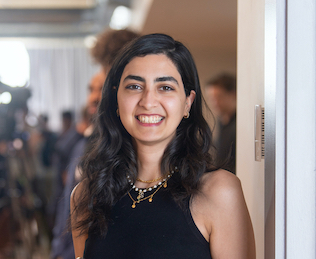
Sara Alhajri from the Royal College of Art (RCA)is part of the team addressing the lack of safe, sanitary toilet experience for women in India’s urban slums. They created Sabal, an end-to-end, product and service solution that empowers women to take charge of their sanitation and health. The ‘Make Your Own Toilet’ DIY kit enables women to set up temporary toilets in their homes, or use an existing shared toilet safely.
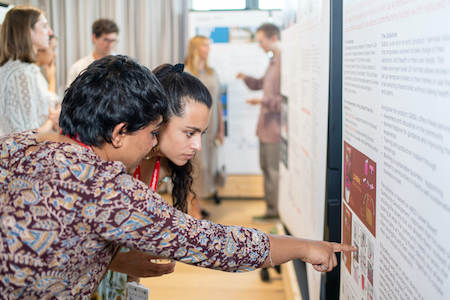
Participants viewing projects at the Design for Good End of Cycle 1 event
held at the Royal College of Art in June 2023
In its inaugural year, which ended in June 2023, DfG focused on SDG6 – clean water and sanitation. Billions of people live without safely managed drinking water, sanitation and hygiene services, which are critical for protecting human health.
Ximena O’Reilly, Global Head of Design at DfG alliance partner Nestlé, said, ‘To have participants from all kinds of countries around the world come together and collaborate not only on this amazing initiative but with designers from other industries – it’s a big deal.’
DfG will now work with more than 10 development organisations and innovation partners on sustainably implementing and scaling the solutions. The app for water systems in Kenya, for example, is being prototyped, and the long-term ambition is to scale to 580 schemes across rural and peri-urban Kenyan regions.
Established in 2022, DfG is a non-profit alliance of leading global organisations that aims to directly harness the creative talent of thousands of designers to design, develop and deliver products and services to improve the lives of millions. The products are donated fully open source. DfG’s founding alliance comprises many of the world’s largest organisations, including General Mills, LIXIL, Logitech, Nedbank, Nestlé, McKinsey & Company, Microsoft, PepsiCo, Philips and the Royal College of Art.
About Design for Good
Established in 2022, Design for Good (DfG) is a non-profit alliance of leading global organisations that aims to directly harness the creative talent of thousands of designers to design and deliver positive impact against the United Nations’ Sustainable Development Goals, on a scale only possible through global collaboration, to develop products and services with impacted communities, which are donated fully open source. DfG’s founding alliance comprises many of the world’s largest organisations, including General Mills, LIXIL, Logitech, Nedbank, Nestlé, McKinsey & Company, Microsoft, PepsiCo, Philips and the Royal College of Art.
Each year, DfG will focus on one of the UN’s 17 Sustainable Development Goals. For its first cycle, DfG addressed goal #6, defined by the UN as ‘ensuring availability and sustainable management of water and sanitation for all’. DfG focused its efforts on solutions for issues such as access to adequate and equitable sanitation and hygiene, the promotion of desalination, wastewater treatment, recycling and reuse technologies, and the implementation of integrated water resources management.
In its second cycle, starting in September 2023, DfG will shift its focus to goal #4, which aims to ‘ensure inclusive and equitable quality education and promote lifelong learning opportunities for all’.
Over the course of the programme, the teams are coached and supported by groups including the founding organisations and NGOs, as they develop their solutions, to ensure they can help address the specific needs of the impacted communities. The most promising ideas are supported with connections to potential funders and implementation partners to further scale their global benefit. On an annual basis, the alliance will instigate the delivery of tested design projects and innovations and, following appraisal, a selection will be scaled for implementation.
Over time, DfG intends to create directly measurable benefit to impacted communities, in addition to transforming the way large organisations across technology, academia, design and social sectors collaborate on a common goal.
The board of trustees for Design for Good comprises Benedict Sheppard (Chair), Gilbert Houngbo (Chair of UN-Water, and Director General of the International Labour Organization), Nick de Leon (Executive, Royal College of Art), John Maeda (technologist and designer), Sandy Speicher (former CEO, IDEO) and Sean Carney (former CDO, Philips).

